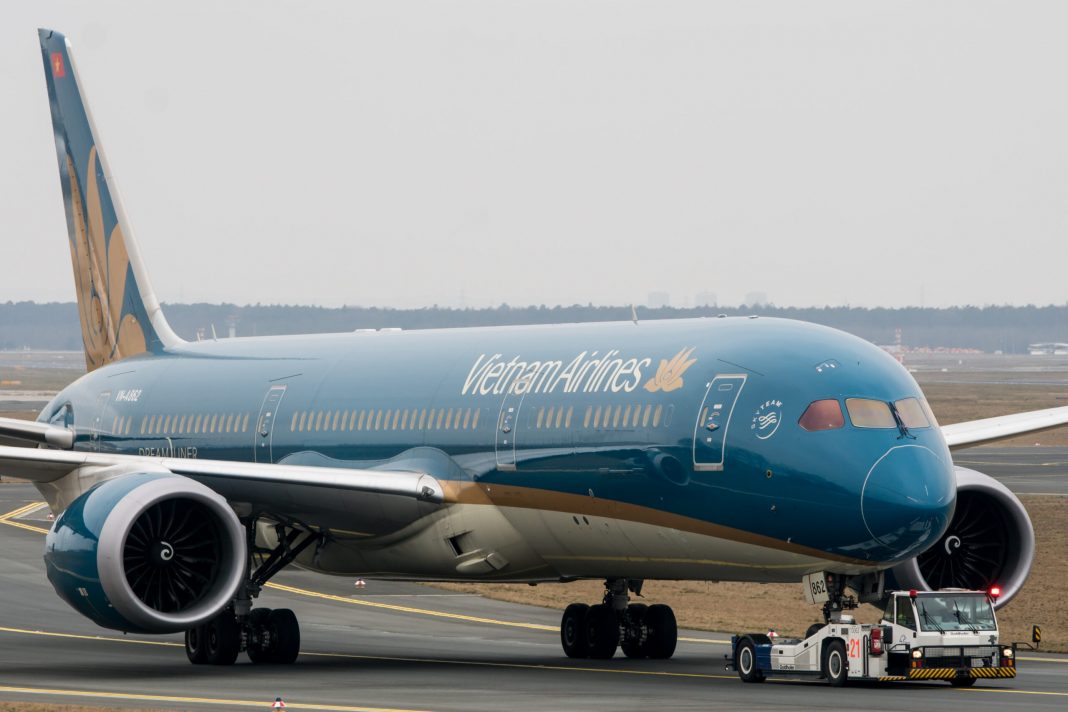Vietnam Airlines has recorded a net loss of under $500 million thus far in the first nine months of 2020. The airline has benefited in recent months from a rebounding domestic market and a healthy repatriation program.

The first nine months have gone well for Vietnam Airlines
All things considered, Vietnam Airlines has done pretty well for 2020. The airline recorded a net loss of VND10,750 billion or about $463 million. Back in March, Vietnam took strict actions limiting the entry of foreign nationals, which negatively impacted Vietnam Airlines’ operations.
Since then, the airline has hemorrhaged cash amid a suspension of flights. However, after just a couple of months, Vietnam’s domestic, commercial flight activity began to resume. And, by June, Vietnam Airlines had completely restored its domestic flight schedule and then some.

The airline also took other decisive cost-cutting actions. This included labor restructuring and reorganization, reorganized debt, and limited capital expenditures– things airlines around the world did. At the same time, Vietnam Airlines offered cargo-only charters and worked with authorities to set up repatriations worldwide.
Taking advantage of opportunities
Vietnam Airlines, including its subsidiaries, like Pacific Airlines, captured over 50% of the domestic market share. The airline group operated 46,700 flights and transported just under 12 million passengers and 146,000 tons of cargo.
The third quarter also turned out quite well for Vietnam Airlines. The airline flew more passengers than in the second quarter and worked to stimulate domestic tourist demand. In addition, the airline launched 22 new domestic routes and, right now, is flying over 300 flights per day.

Repatriation flights have also been at the forefront of Vietnam Airlines’ international flying. The carrier saw opportunities to bring passengers home and conducted flights to countries like Angola, Equatorial Guinea, the United States, Taiwan, plenty of European countries, and more. The airline has operated over 100 repatriation flights and brought home over 30,800 citizens.
In addition, Vietnam Airlines has also operated over 2,600 cargo flights. Some of these flights include medical equipment donations and essential economic activities.
The future
Vietnam Airlines is expecting the fourth quarter to go better than the last two. The airline notes that the recovery of the domestic market coupled with limited international flight resumptions will serve the airline well. The carrier continues to evaluate its network and will work with relevant government authorities to reopen international flights were possible.

Cost reductions, debt rescheduling, and other measures will continue. The flag carrier is not out of the woods yet. With intense domestic competition, Vietnam Airlines has often focused on bringing international passengers to and from the country. Until those flights resume, Vietnam Airlines will need to compete intensely on the domestic market.
Debt rescheduling and other cost-saving measures will help the airline reduce its cash commitments and preserve its liquidity. Vietnam Airlines will need to be prepared in case the recovery does not turn out positively, and it again suffers losses. For now, however, the airline is in a good place moving forward.
What do you make of Vietnam Airlines’ results thus far? Let us know in the comments!
[ad_2]
Source link


